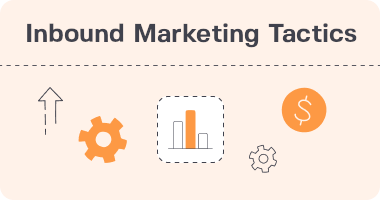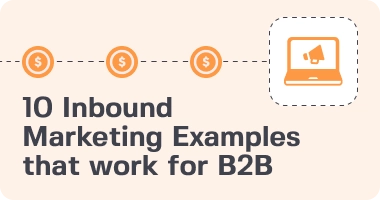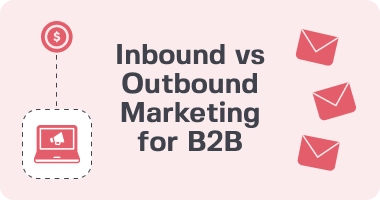Video content is pretty much taking over the world, and it’s easy to see why. Did you know that 78% of people watch videos every week? That’s a lot of screen time! And it gets better – a whopping 96% of folks prefer watching a video to get the lowdown on products and services rather than flipping through a manual or reading blocks of text.
As of 2023, B2B video content is killing it, pulling in engagement rates that are 1200% higher than text and images combined. Crazy, right?
So, here’s the deal: As a B2B business, you’ve probably caught on that videos aren’t just the latest fad – they’re exactly what people are looking for. Short, snappy, and way more engaging than endless text. Maybe you’ve dabbled in making a video or two yourself. But the million-dollar question is, how do you make video a regular part of your enterprise marketing game plan and keep churning out great content without missing a beat? Let’s dive into that.
Benefits of video marketing
Video marketing is a goldmine of opportunities for businesses, and it’s not hard to see why. With 89% of people eager to see more video content from brands in 2024, it’s time to dive into the myriad benefits that video marketing offers your business. Let’s explore a few key advantages:


1. Reaching Younger Audiences
Video content has a unique appeal to both millennials and Gen Z. The younger crowd, especially Gen Z, is all about short, snappy videos like those on TikTok. They’re not just searching for answers on Google; they’re “TikToking” it. Videos deliver your message quickly and engagingly, perfect for the short attention spans of today’s youth. Millennials, on the other hand, still favor video but prefer longer formats. For them, video content is the go-to for researching products and services, even in a B2B context. This preference is backed by insights from the marketing advisory company Merit, highlighting video’s pivotal role in modern consumer research.
2. Boosting SEO and Lead Generation
Videos are not just content; they’re an SEO powerhouse. They improve search rankings and lead generation, attracting backlinks that enhance your site’s credibility and search engine ranking. Every backlink acts as a vote of confidence from one site to another, which is crucial for SEO. Moreover, videos are key in searches for “best X near me,” playing a significant role in how potential customers discover your brand online.
3. Enhancing Brand Awareness and Personalization
Brand awareness gets a huge boost from video content. It’s not just about making your brand more visible; videos allow for personalization, especially in account-based marketing (ABM) strategies. Personalized videos can make your outreach efforts more effective, creating a direct connection with your audience.
4. Driving Shares and Virality
The shareability of videos is unmatched. They’re more likely to be shared across social platforms, increasing the chances of your content going viral. This aspect is vital for broadening your reach and engaging with a wider audience.
5. Influencing Buying Decisions
Videos have a profound impact on consumer behavior. Google’s research shows that over 90% of people discover new brands and products on YouTube, with more than 50% of shoppers saying online video has influenced their purchasing decisions. This statistic underlines the critical role video plays in the consumer journey, from discovery to purchase.
Why Enterprise Companies Struggle to Produce Enough Video Content

The demand for video content is at an all-time high, yet many enterprise-level companies are finding it difficult to produce the volume of video content they really need. Let’s explore the reasons behind this challenge:
- Outsourcing Costs: While outsourcing video production can result in high-quality outcomes, it often comes with a significant cost. For enterprises requiring a steady flow of new content, these expenses can quickly become unsustainable.
- Complex Approval Processes: In large organizations, content frequently needs to navigate through multiple layers of approval. This can greatly slow down the production process, hindering the ability to produce videos at scale.
- Lack of In-House Expertise:Despite having vast resources, enterprise companies may not have specialized video production teams in-house. This lack of expertise means they must either invest in training or depend on external agencies for their video production needs.
- Brand Consistency Concerns: Enterprises are particularly cautious about their brand image. Concerns about producing content that may not align with their brand can prevent them from fully embracing video, especially if they don’t have the right tools to ensure consistency across their content.
- Resource Allocation: Video production demands time, tools, and talent. With multiple projects vying for these resources, organizations often struggle to consistently dedicate what’s necessary for video creation.
- Overemphasis on High Production Value: There’s a common belief among many companies that every video must meet blockbuster production standards. This perspective can be restrictive, as not all content needs a large budget or extensive production efforts to be effective.
These hurdles illustrate why even well-resourced enterprise companies can face challenges in meeting their video content goals, highlighting the need for more streamlined processes, strategic planning, and perhaps a shift in mindset regarding video production values.
How to master video marketing for B2B enterprise companies

- Define Your Target Audience and Goals
Start by pinpointing who your videos are for and what you aim to achieve with them. Understanding your audience’s needs, preferences, and pain points ensures your content is relevant and engaging. Your goals might range from increasing brand awareness to driving sales, and these objectives should guide your content strategy.
2. Choosing the Right Video Formats and Topics
The choice of video format—be it explainer videos, case studies, or product demonstrations—depends on your audience and objectives. Select topics that resonate with your viewers, offering them value and insights into how your products or services can solve their challenges.
3. Plan Your Video Production and Distribution Strategy
Strategically plan where and how to distribute your videos. Platforms such as your company website, blog, YouTube channel, and social networks (LinkedIn, Facebook, Instagram, Twitter) offer diverse avenues to reach your audience. The choice of platform should align with your target audience’s preferences and habits. For example, LinkedIn is ideal for professional and industry-specific content, while YouTube is great for in-depth explainer or how-to videos.
4. Measure Success and Iterate Your Video Marketing Efforts
Track your videos’ performance across different platforms to understand what works and what doesn’t. Metrics like view count, engagement rates, and conversion rates are crucial for gauging success. Use these insights to refine your strategy, experimenting with different formats, messages, and distribution channels to optimize your video marketing efforts.
Best B2B Marketing Videos to Produce
- Video Chatbots and TikTok Shorts: These formats cater to engaging with audiences in a dynamic, interactive manner, ideal for capturing attention quickly.
- Podcasts: Offer in-depth discussions on industry trends, insights, or success stories, catering to audiences seeking comprehensive information.
- Case Study Videos: Showcasing your success stories, such as Slack’s case study videos, can help convert potential clients by demonstrating your expertise and results.
- Testimonial Videos: Leverage customer testimonials to build trust and credibility throughout all stages of your sales funnel, similar to Testimonial Hero’s approach.
- Brand Videos: Utilize brand videos, like those from Hootsuite, to convey your brand’s vision and values, engaging audiences at the top and middle of the sales funnel.
- Product or Service Videos: Highlight specific offerings with product videos, as Trello does, to illustrate benefits and use cases to your prospects.
- Explainer Videos: Educate and inform your audience on various topics, as seen with Practicus, to nurture interest and engagement throughout the buying journey.
Scaling Video Production

- Leverage AI and Video Tools: Tools like Animoto can streamline video production, making it easier to create quality content at scale.
- Repurpose Existing Content: Transform blog posts, ebooks, and other materials into video content, maximizing the utility of your existing resources.
- Templates and Branding: Utilize templates and ensure your videos consistently reflect your brand identity, with or without sound, to enhance brand recognition.
- Outsourcing: Collaborate with specialized teams, such as 42dm, to efficiently produce high-quality video content without overburdening your internal resources.
In conclusion, mastering video marketing for B2B enterprises requires a well-rounded strategy that encompasses audience and goal definition, strategic planning of formats and distribution, iterative improvement based on performance metrics, and efficient scaling of video production. By following these guidelines, B2B companies can significantly enhance their market presence, engage their target audience more effectively, and achieve their marketing objectives through compelling video content.

















